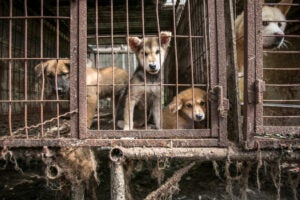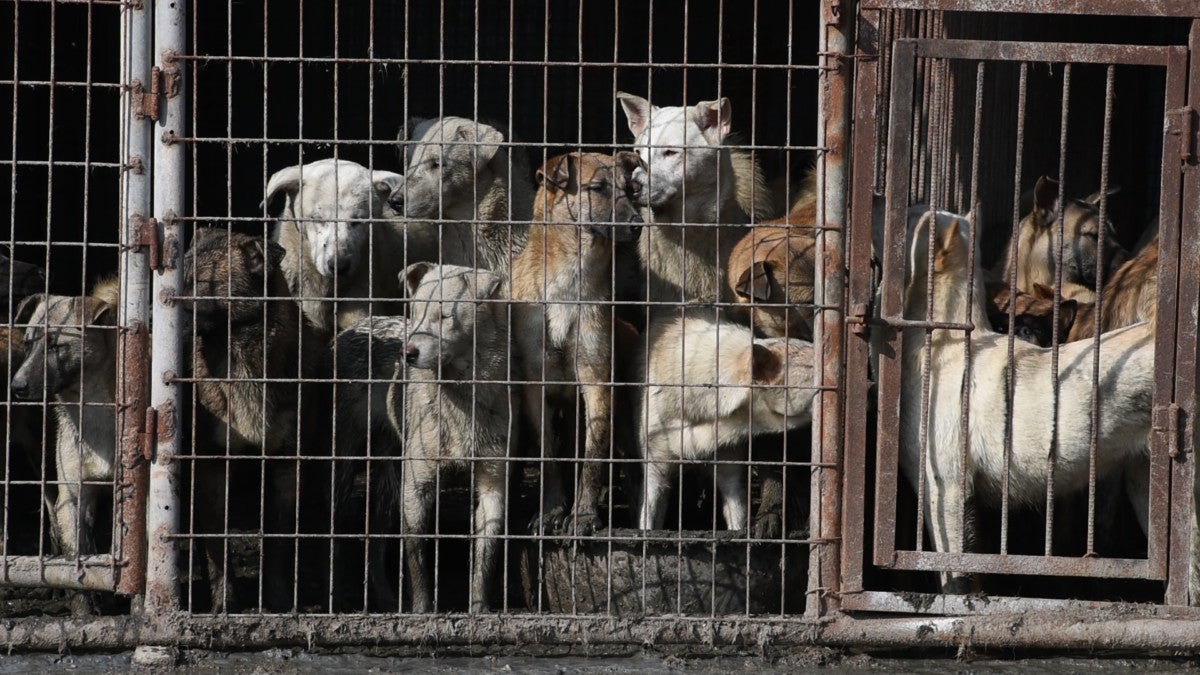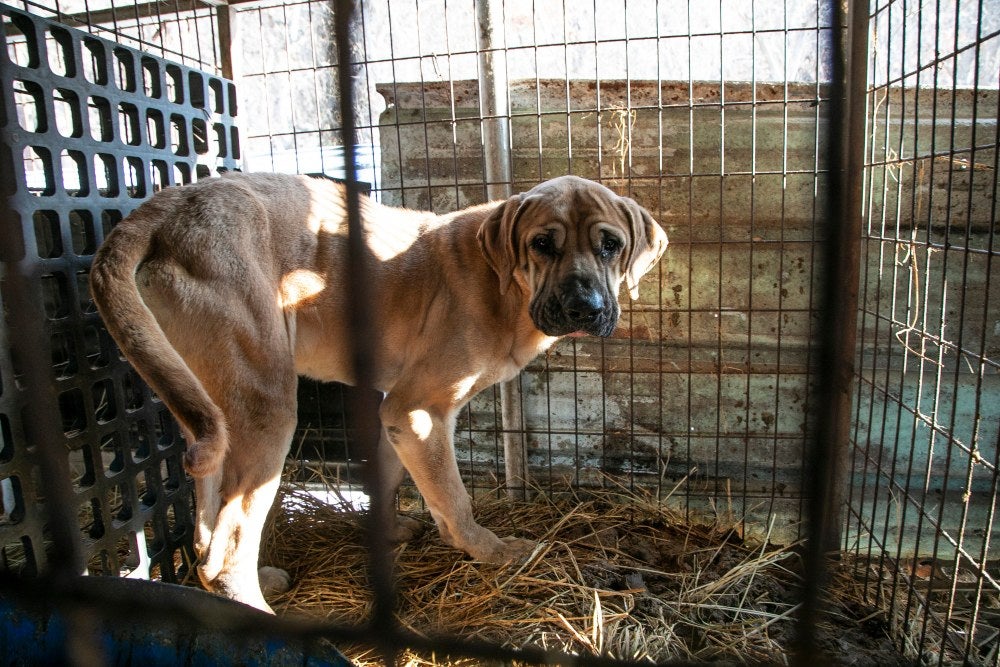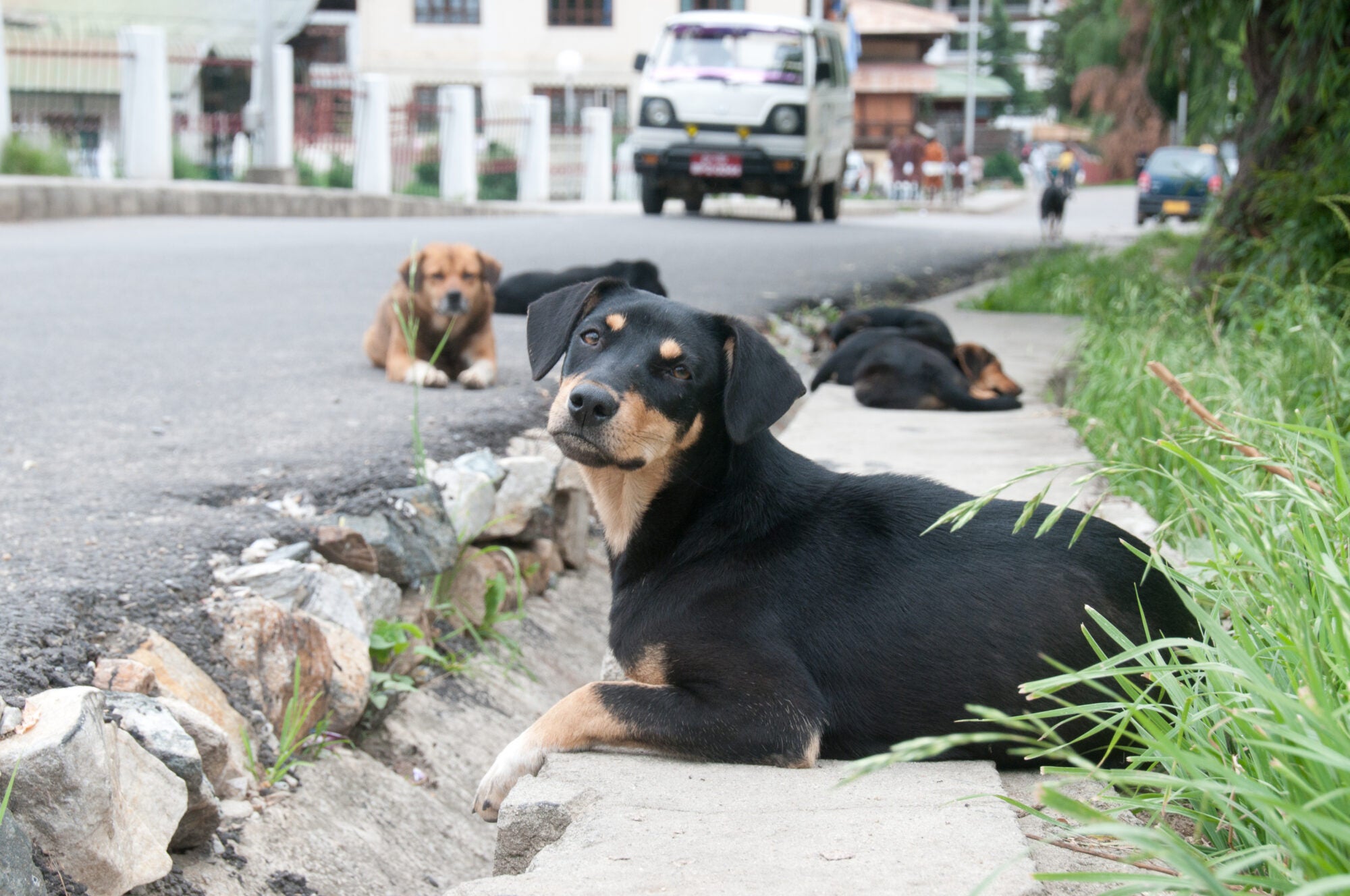
SEOUL, South Korea—More than half of South Koreans in their 20s who have consumed dog meat in the past year, felt social pressure to do so from influential seniors such as their father or senior colleagues at work, a new survey finds. While the majority of respondents in this age group did not consume dog meat, of those who did, 54% reported that they ate dog meat under pressure, rising to 57.4% in urban areas. Despite this, the survey found that nationwide refusal to eat dog meat is very high, with 87.5% of people saying they have never eaten it or will not do so in future and 56% supporting a ban.
Animal protection group Humane Society International/Korea which commissioned market research experts Nielson Korea to conduct the survey of 1,500 people from urban and rural areas, says young Koreans instinctively feel that eating dogs is wrong and they should feel empowered to say no in social situations. HSI/Korea says that pressure to eat dog meat from family or work seniors, means that more people—particularly in urban areas—are eating dog meat than actually want to, and the percentage of dog meat eaters would be considerably lower if more people felt free to exercise their individual choice.
Sangkyung Lee, Humane Society International/ Korea’s dog meat campaign manager, said: “Although it is clear that the vast majority of South Koreans don’t and won’t eat dog meat, it is nonetheless concerning that so many young Koreans feel pressured to eat it even though they don’t want to. The data shows that people in their 20s are more supportive of a dog meat ban than other age groups, and are more concerned about animal suffering and the lack of hygiene. Despite those concerns, more than half of respondents in this age group who did eat dog meat in the past year, say they felt pressured to do so. Pressuring people to eat dog meat needs to become socially unacceptable, and young Koreans like myself need to feel empowered to say no and stick to our principles. It’s ironic that while an individual’s right to choose is the top reason put forward by those who oppose a dog meat ban, our survey suggests that if social pressure were removed, even more people would exercise that choice by not eating dog meat at all.”
The main findings of the survey are that:
- 87.5% nationwide say they have not or will not consume dog meat in the future.
- 53.6% of Koreans in their 20s who ate dog meat in the past year, did so despite not wanting to.
- 29.2% nationwide were first introduced to dog meat by their father and 22% by their office senior.
- 63.7% nationwide say they are concerned about the welfare of dogs raised for meat.
- 53.1% nationwide believe dog meat is not safe and hygienic to consume.
- 56% nationwide support a dog meat ban.
- 64.1% of respondents nationwide who oppose a dog meat ban do so because they believe it should be an individual’s choice.
Earlier this month (Oct 7) at the National Assembly, Democratic Party Assembly member Jeoung-ae Han expressed her frustration that the Ministry of Food and Drug Safety isn’t doing enough to tackle the illegal and unhygienic dog meat industry. Han said: “According to the Food Sanitation Act, dog meat is not considered food therefore it is clear that dog meat trade is illegal. The current law states that the Ministry can crack down on dog slaughter, and dog meat processing, distribution and cooking because it is illegal. However, the Ministry does not do its work.” She went on to say, “it is threatening people’s health to turn a blind eye to unhygienically processed dog meat.”
A government taskforce was announced in November last year and established in December, to evaluate options for a dog meat ban. Despite surveys showing that the majority of Koreans would support a ban, the task force has twice delayed publishing its conclusions and has now been silent since June this year. HSI/Korea says the time for delay is over and urges President Yoon to help South Korea end the dog meat era forever.
JungAh Chae, executive director of HSI/Korea says: “The taskforce was originally set up because it was recognized that the time is right to ban dog meat. However, almost a year later, the taskforce has still not advanced any recommendations for how to implement a dog meat ban despite that outcome clearly being favoured by most Koreans. President Yoon is a dog owner himself, including of a rescued Jindo, a breed we typically find suffering on dog meat farms. We urge him to help make all Jindos just as lucky by ending South Korea’s dog meat era once and for all. By doing so we would join with others across Asia such as Hong Kong, Taiwan, Singapore and Thailand in consigning dog meat to the history books.”
Since 2015, HSI/Korea’s Models for Change program has helped dog farmers in South Korea transition to new, more humane and profitable livelihoods such as chili plant and parsley growing or water truck delivery. HSI/Korea has permanently closed 17 dog meat farms and rescued more than 2,500 dogs who find adoptive homes in the United States, Canada and the United Kingdom, with a small number rehomed in South Korea.
Download photos and video of an HSI/Korea dog meat farm rescue.
ENDS
Media contact: Wendy Higgins, director of international media: whiggins@hsi.org
Notes: The survey of 1,500 people from urban and rural areas was conducted online in August 2022 with a margin of error of +-2.53%.



